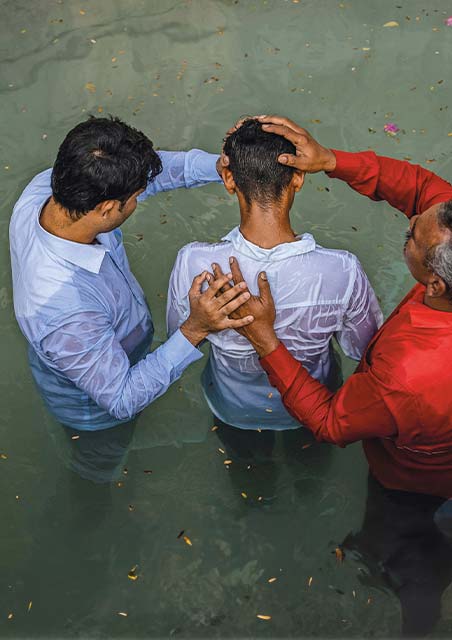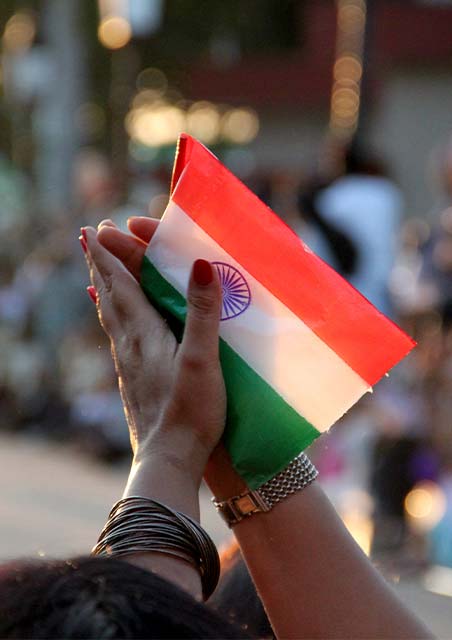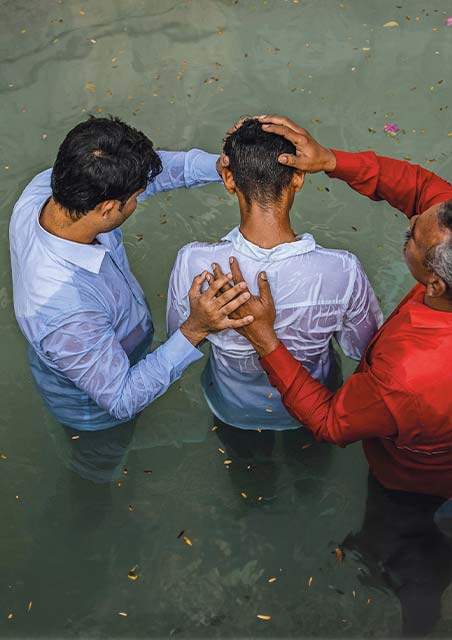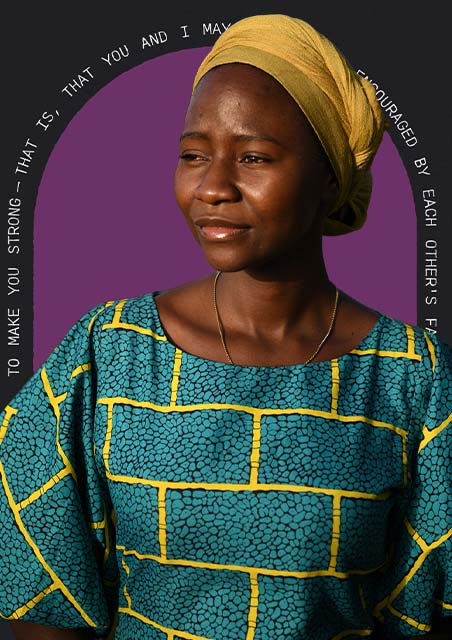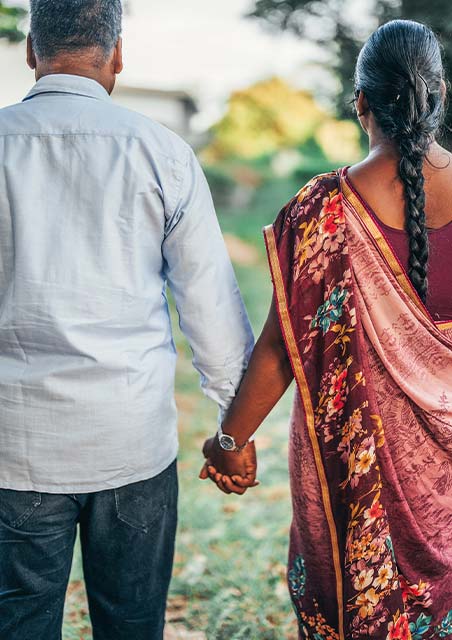“Worth less?” Why are Christian women and girls particularly vulnerable to persecution?
Open Doors’ See. Change. campaign seeks to ensure Christian women and girls across the world are seen, valued and empowered to fulfil their God-given potential. But why is this campaign even needed? Here we explain why millions of our sisters are acutely vulnerable to persecution for their faith and their gender, and how you can help them see change.
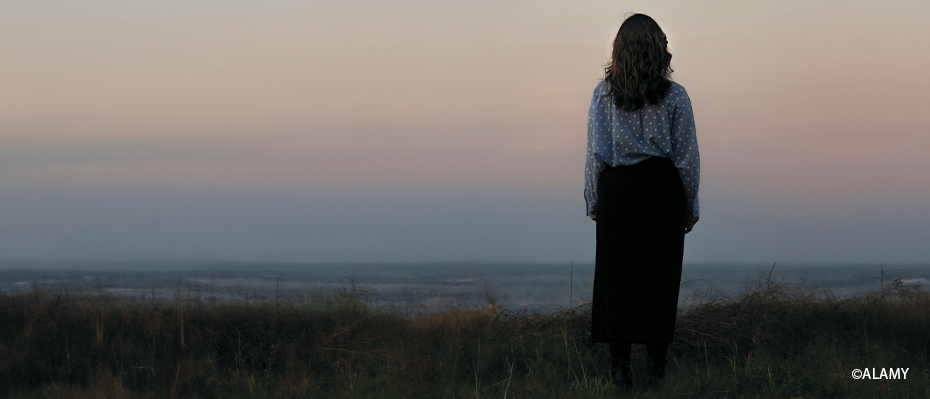
Your prayers and gifts have strengthened Sara to keep following Jesus despite immense hardship: read Sara's story
Xuan* (34) is a member of the Hmong tribe in Vietnam, living in a remote tribal village with her husband and two children. She evangelises in secret, often going to meet people in the dead of night, or travelling hours on her motorbike to reach those even further away.
When the village authorities confronted her about her ministry, they went to her husband first and demanded that he divorce his wife. “Men in our society are superior and this is why, when their wives become Christians, persecutors first come to them,” Xuan (pictured below right) says.
When Xuan’s husband refused, they killed off Xuan’s animals – the family’s source of income. They would have expelled Xuan from the village too, but her husband stepped in to save her. Despite the pressure against her, and the danger of her mission, many Christians in her village came to know Christ because of Xuan’s perseverance. “I will not forsake my mission, my calling,” she says. “Even if the authorities catch me, I will let them do everything they can to stop me – even if they kill me. I know I am going to die for the Lord.”
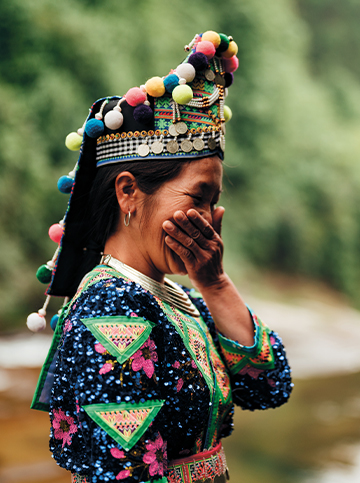
Xuan’s story is just one of many. Across the world, millions of Christian women suffer not only because of their faith but also their gender. This persecution tends to be violent, complex and hidden from public view.
Violence against Christian women and girls
One of the most documented and visible forms of persecution against women and girls is violence – be that sexual, physical or psychological. Sexual violence can, for example, involve Christian women being abducted by militants like Boko Haram and used as sex slaves, or it can be covert, under the guise of forced marriage. Given the ‘honour’ culture of many societies, sexual violence is often used to intentionally shame and stigmatise victims as well as their families and communities. This can result in a breakdown in relationships – for instance, parents no longer want to be associated with their daughter.
One such country with an honour-shame culture is India. Here many of the methods used to persecute Christian women and girls result in stigma – indeed, this is often a key reason behind attacks. For example, rape victims are often viewed by society as sexually impure, making them vulnerable to rejection and limiting their prospects.
The threat of shame and stigma is a key reason why physical violence is also common against Christian women and girls. Women are attacked with impunity because victims often keep quiet for fear of the dishonour it will bring and poor legal frameworks mean wrongdoing often goes punished. This, in turn, makes women and girls increasingly vulnerable to psychological violence and many experience trauma for years after the persecution event itself.
Compounding vulnerabilities make this a complex issue
“Men in our society are superior [so] when their wives become Christians, persecutors first come to them” Xuan, Vietnam
The persecution faced by millions of our sisters is complex because of the compounding effect one vulnerability has on another.
If Xuan’s husband had divorced her as the authorities wanted him to, she would have been without protection and provision. Her source of income would be gone, she would have had no home and she would have lost her children. Left totally vulnerable, she could have been expelled from the village or subject to violent attack.
While Xuan’s husband stepped in to save her, other women have not been so fortunate. When Ayesha*, a Somali believer in the Horn of Africa, became a Christian, her family tortured her cruelly and tried to forcefully remove her children from her. When Ayesha eventually left her home, she was attacked by three women and almost died – but when her family came to the defence of the women who stabbed her, they were released from prison.
In Egypt, Mariam’s* husband Omar* was killed by local radical Muslims. The emotional and spiritual turmoil from his death took its toll on Mariam and her children’s mental health – but without the income from Omar, Mariam found that she could no longer afford her children’s school supplies, and so their education stopped.
A hidden persecution
The persecution of our sisters is often hidden – in society, in the home, and in the data.
It often takes place behind the seeming respectability of everyday life. Forced marriage, sexual violence and house arrest all take place against the backdrop of normalised behaviour, with little to suggest anything untoward. Sara* from Iraq was imprisoned in her room without food by her father when he found out she’d become a Christian. After ten days, he told her that she was to marry her stepmother’s Muslim nephew in an attempt to “fix” her.
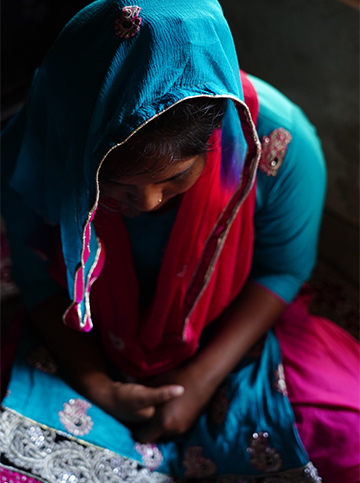
In Nepal, Pramila* (pictured right) was thrown out of her home by her family when she refused to renounce her faith in Jesus. She eventually married a man who initially said he was happy with her Christian faith, but very quickly changed his mind. “Later, he started verbally abusing me,” she says. “In the middle of all this, I became pregnant and had a daughter. After that, he said he didn’t need me and he went away and left me.”
And finally, while statistics and information are available to demonstrate how much our persecuted sisters are at risk, often this doesn’t tell the full story. Victims may hide details to protect their family. In turn, families may be reluctant to tell others for fear of reputational damage that could impact on social standing, work or access to communal resources. Men may be reluctant to give corroborative evidence because it implies that they’ve failed to protect their family. Furthermore, most government data collection methods do not show female-specific freedom of religion or belief violations; instead, they aggregate incidents against both genders.
Will you help our sisters see change?
In many cultures, women do not hold the same value as men. This undergirds much of the persecution faced by our sisters. And in many cases, being a Christian means they are regarded as having even less worth.
Open Doors’ vision is that every woman who is persecuted for her faith and gender is seen, valued and empowered to reach her God-given potential. This is the heart behind Open Doors' See.Change. campaign, which seeks to raise support for our persecuted sisters and highlight their plight, not just among Christians, but also those in the corridors of power.
Thanks to your prayers and support, Xuan, Ayesha, Mariam, Sara and Pramila have all received spiritual care and aid from local Open Doors partners. They now know their true value in Christ – and you have the power to make that truth known to more and more women who are counting the cost for their faith in Jesus.
“I find that my life has already changed so much after allowing Jesus to rule my life,” Xuan says. “I know that I can directly pray to the Lord and He will answer me. I know that my Lord is alive!”
*Name changed for security reasons
